1974 FJ40 with 2007 FJ Cruiser Conversion, Classic Look with Modern Drivability
1974 Toyota FJ Cruiser for sale in Alpharetta, Georgia, United States
| Condition: | Used |
| Item location: | Alpharetta, Georgia, United States |
| Make: | Toyota |
| Model: | FJ Cruiser |
| SubModel: | FJ Cruiser Chassis |
| Type: | Cab & Chassis |
| Year: | 1974 |
| Mileage: | 90,000 |
| VIN: | FJ40174524 |
| Color: | Blue |
| Engine size: | 4.0 Toyota V-6 |
| Number of cylinders: | 6 |
| Power options: | Air Conditioning, Cruise Control, Power Locks, Power Windows |
| Fuel: | Gasoline |
| Transmission: | Automatic |
| Drive type: | 4WD |
| Interior color: | Black |
| Drive side: | Left-hand drive |
| Safety options: | Anti-Lock Brakes, Driver Airbag |
| Options: | 4-Wheel Drive, CD Player, Leather Seats |
| Vehicle Title: | Clear |
| Want to buy? | Contact seller! |
Description for Toyota FJ Cruiser 1974
1974 FJ40-Cruiser
Our goal is to build Classic Conversion vehicles that our customers want to use as daily drivers. To provide an idea of what goes into a build like this, we documented our 1974 Toyota FJ40 / 2007 Toyota FJ Cruiser conversion. Too often we have found that even a fully restored vehicle doesn't have a drive that compliments its looks. That's because technology employed in the drivetrain, steering and safety feathers were often 50 plus years old. Even with all new parts, these vehicles still did not drive like today's modern vehicles. (If you own a restored FJ40. you understand exactly what we're saying.)
By combining the classic styling(the FJ40 body) with up-to-date automotive technology (the FJ Cruiser chassis), we created a custom-built 4-wheel drive classic that truly does provide a ride and drive that is comparable to its looks. For a build like this, we needed two donor vehicles: the classic (1974 FJ40) and the modern (2008 FJ Cruiser). We purchased the FJ40 for the body. The FJ Cruiser really served as the heart of the project with 90k miles on it. Because these Toyotas are known for their reliability and their longevity, the mileage was not a concern.
We changed all the fluids, belts, and hoses; upgraded the brakes with new drilled and slotted front and rear rotors and pads; installed new CV axles, new plugs,and a new air filter; and installed a new MBRP exhaust system. (Suspension, wheels/tires, and lights were also new.) We have kept as much of the functionality offered in the FJ Cruiser as possible. The dash and steering wheel functions, four-wheel drive, seating and drivability of the vehicle were all from the FJ Cruiser. We revamped the interior with a custom design that blended the modern and classic seamlessly. (We documented thebuild so you can see what went into the integration of these two FJs. It was more than just taking off the FJ Cruiser body and putting the FJ-40 body on the FJ Cruiser chassis.)
After a few days of measurement and planning, we started out by cutting away the parts of the FJ Cruiser that we were not going to need. What remained was the complete chassis including the frame, suspension, and running gear. In the interior, we kept the front floor pan, firewall, dash, steering and pedal assembly, center console and the front seating. Before we started to fit the FJ-40 body, we needed to address the differences in the two wheelbases. The FJ Cruiser was 16" longer and 6" wider than the FJ-40 was. The width was resolved with trimming and installing OE style front fenders and rear flares that were 3.5" wider than stock. (This also supported the added room we needed to fit 35" tires and a 2" lift kit.) To address the wheelbase issue, we cut the frame and removed the unneeded inches, we sleeved it and welded in back together, and then we shortened the lines, exhaust, and the rear driveshaft. We had to modify the gas tank and move it from the driver's side of the Cruiser to the rear. As a result, we also needed to move the gas filler neck from the FJ40 stock location.
It was now time to start fitting the FJ-40 body. We started with the front cowl and windshield. To get the positioning for which we were looking, we needed to cut the FJ Cruiser dash and reroute the heat and air ducts. After a few days of cutting and plumbing, we had our front cowl positioned. This provided our start pointfrom which to build. Next, we fabricated dash mounts to fix the FJ Cruiser dash to the FJ-40 front cowl. We then dry fitted our hood, fenders and grill. We changed out the FJ Cruiser radiator because it would not fit under the FJ-40 hood. We chose a Tacoma radiator to take its place. (We were able to use the FJ Cruiser's AC condenser mounted in front of the new radiator.) We removed the engine fan for space reasons and installed a dual Flexalite electric fan and temperature sensor.
Things under the hood fit but had to be repositioned a bit. We trimmed the inner fenders and built new inner fenders that we integrated with the Cruiser's chassis. Then we re-mounted the under-the-hood components along the new inner fender wells. (We moved the battery to a compartment that we build under the floor behind the driver's seat because of space limitations.)
Although we tried to keep the FJ-40 look and feel as close to stock as possible, we felt that we could improve the original look of the long frame rail that hung out in front of the grill, so we created a new integrated frame horn that was designed to fit a Smitty Built Mod bumper with medium length end pieces. We culminated with a S/B 9.5K synthetic rope winch, providing an integrated look with the front grill.
With the front half of the integration complete, we turned our attention to the back section of the build. We decided to purchase an aluminum tub, tailgate, fenders, fender flares and side steps for this build. This allowed us to section the build and start with better than new components that would not rust over time.As we fit the rear section and installed the new aluminum fender flare, we got the width necessary to fit the aftermarket wheels and tires. We installed MHT 17" wheels with Toyo Open Country MT's tires. We purchased an aluminum upper and lower tailgate to continue that better-than-new look and feel. (The lower tailgate had an integrated storage compartment.)
Finally, we filled the gas tank and started our 500-mile shake down. We put over 900 man hours into this build and have created a custom FJ40/Cruiser that looks and drives like a show room model.
Buyer is solely responsible for the transport of the vehicle.
A $5000.00 deposite is required within 48 hours of the end of auction. This is available through PayPal.
Track Page Views With
Auctiva's FREE Counter
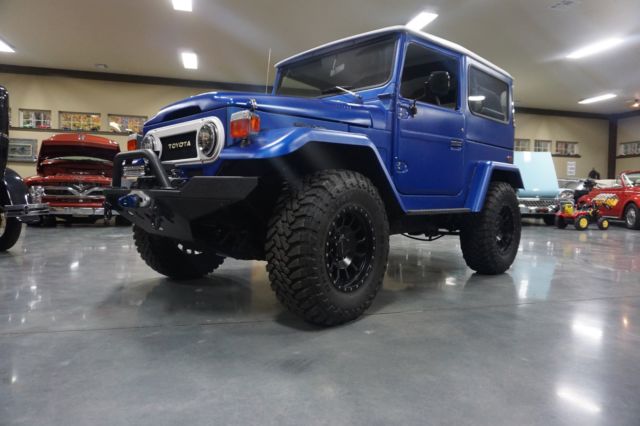
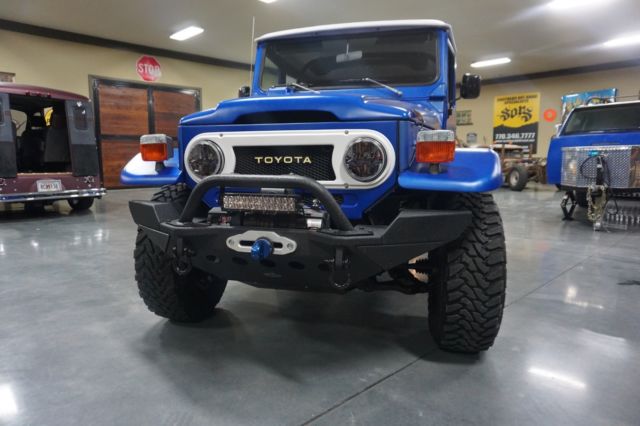
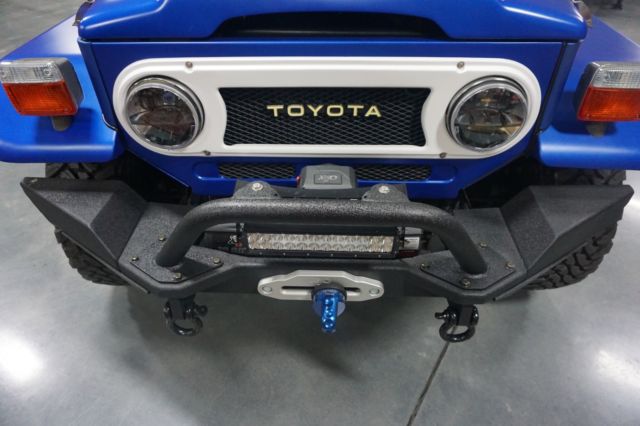
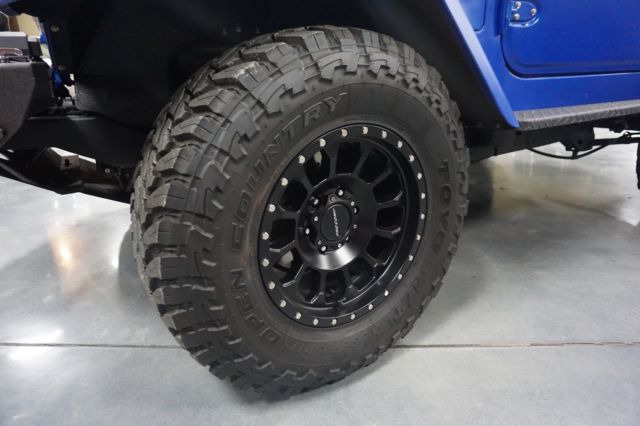
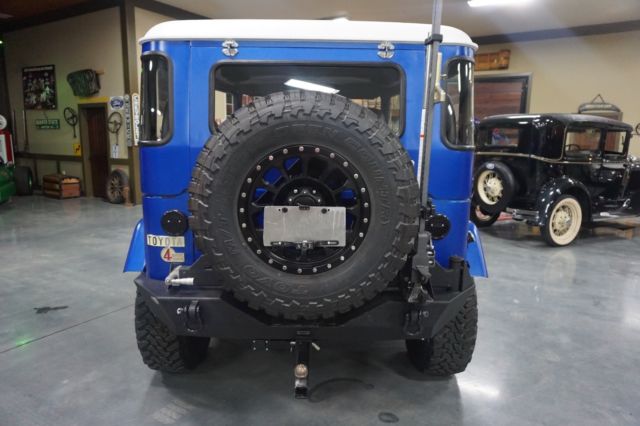
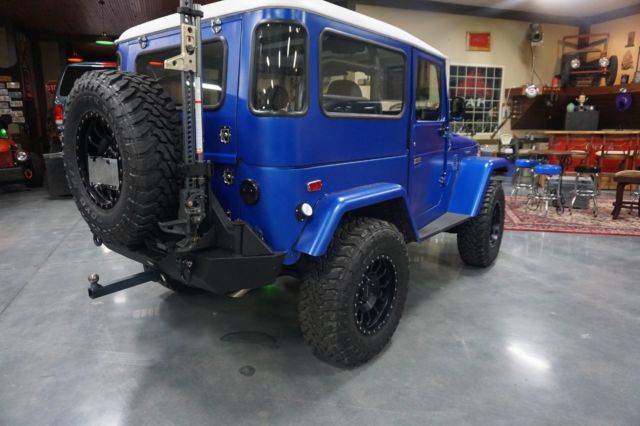
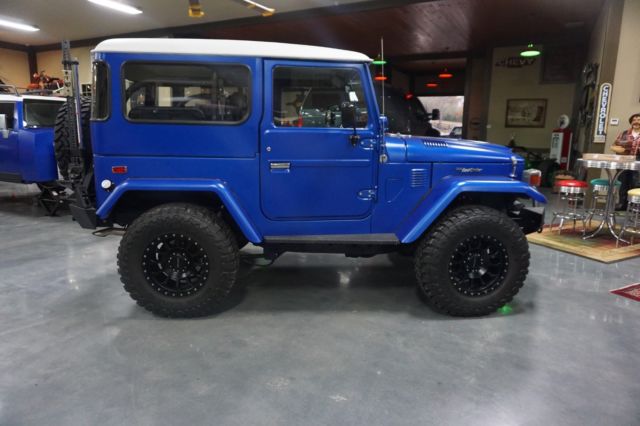
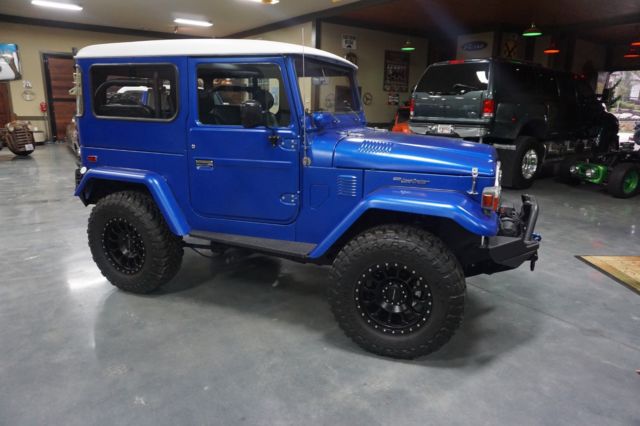
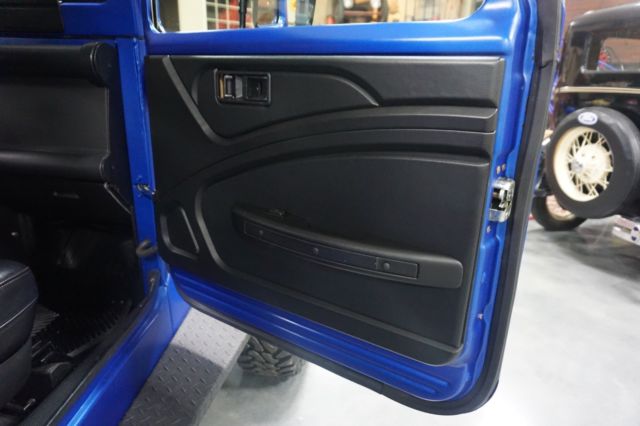
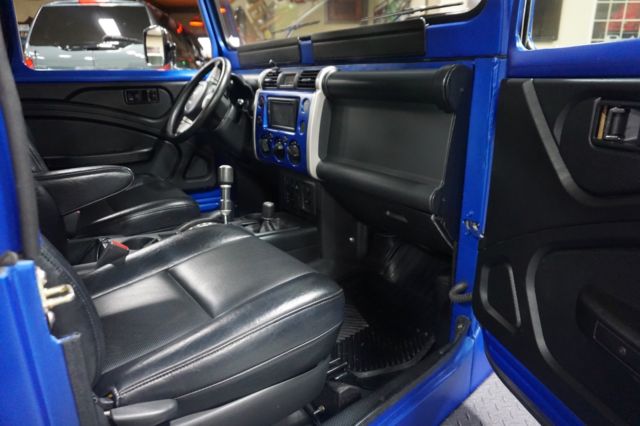
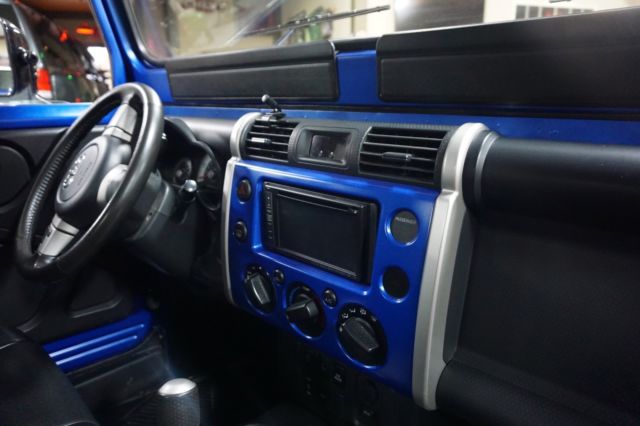
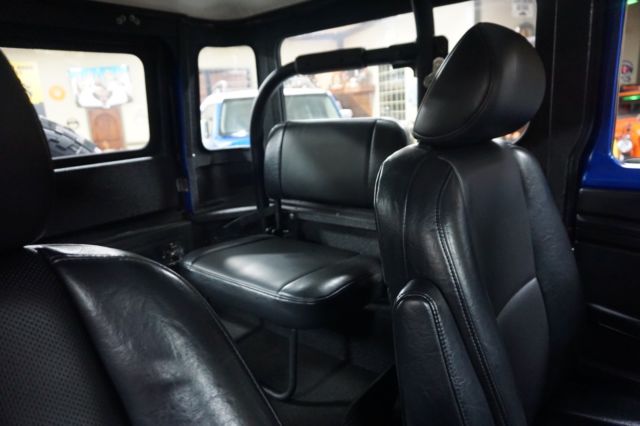
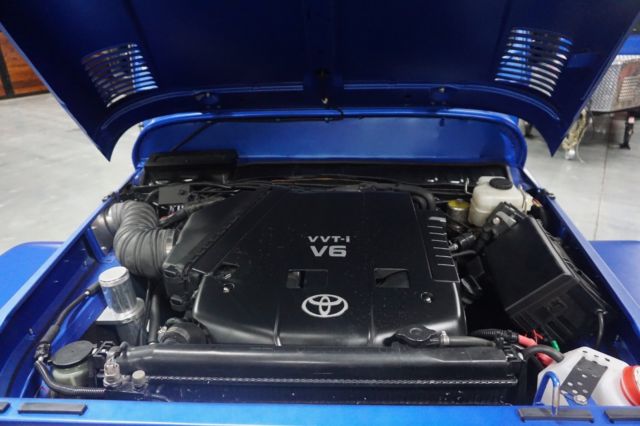
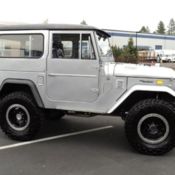 1974 Toyota FJ40 Silver Land Cruiser - A Classic!
1974 Toyota FJ40 Silver Land Cruiser - A Classic!
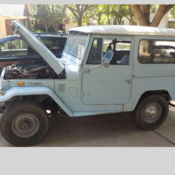 Land Cruiser, 1974 FJ40, 59,929 original miles, barn find, Classic Toyota
Land Cruiser, 1974 FJ40, 59,929 original miles, barn find, Classic Toyota
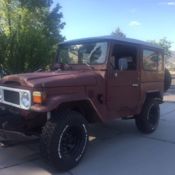 1982 Toyota Land Cruiser FJ40 V8 Conversion
1982 Toyota Land Cruiser FJ40 V8 Conversion
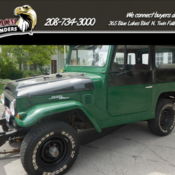 1972 Toyota Land Cruiser, 4x4,CB,302 ford conversion,Fj40,4WD,
1972 Toyota Land Cruiser, 4x4,CB,302 ford conversion,Fj40,4WD,
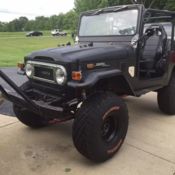 1973 Toyota Land Cruiser FJ40 Chevy 350 conversion
1973 Toyota Land Cruiser FJ40 Chevy 350 conversion
 1966 FJ40 Land Cruiser 4BT conversion, Proffitt's Frame off Restoration
1966 FJ40 Land Cruiser 4BT conversion, Proffitt's Frame off Restoration
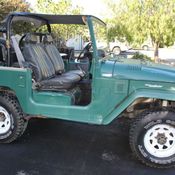 1976 Toyota FJ40 Land Cruiser with Checy 350 engine conversion
1976 Toyota FJ40 Land Cruiser with Checy 350 engine conversion
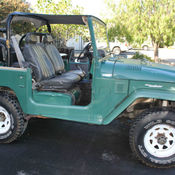 1976 Toyota FJ40 Land Cruiser with Small Block engine conversion done
1976 Toyota FJ40 Land Cruiser with Small Block engine conversion done
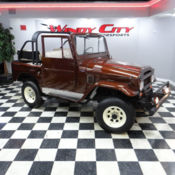 70 Toyota Land Cruiser FJ40 4x4 Chevy V8 Conversion Hardtop Tube Bumpers SOLID!
70 Toyota Land Cruiser FJ40 4x4 Chevy V8 Conversion Hardtop Tube Bumpers SOLID!